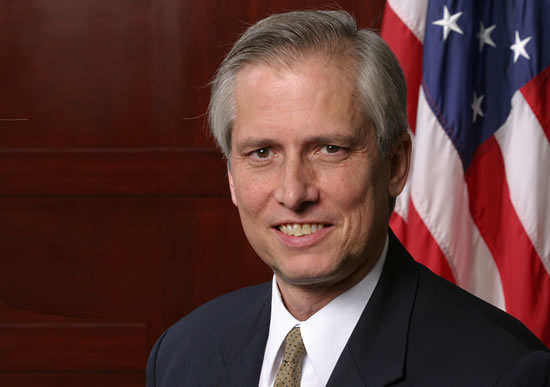GUEST EDITORIAL
Policing: Better by Degree
By President Jeremy Travis, John Jay College Of Criminal Justice

President Jeremy Travis, John Jay College Of Criminal Justice
“Sound police service demands a number of highly specialized skills and a sensitivity to the public and the public temper which, very likely, has existed at no other time in our history.”
This profound pronouncement, taken from one of the foundational documents that led to the creation of John Jay College of Criminal Justice in 1964, could just as easily have been written today, as recent events remind us yet again of the importance of the role of police in our society, the dangers they face, and the underlying tensions in the community.
These issues are not new to national conversations on criminal justice; they have been highlighted time and time again by national bodies such as the National Advisory Commission on Civil Disorders (the Kerner Commission), the President’s Commission on Law Enforcement and Administration of Justice, and many others. In each case, an august assemblage of experts arrived at the conclusion that it is important for police officers to be college-educated. Much more recently, the Task Force on 21st Century Policing, created by President Obama, recommended in May 2015 that the federal government, as well as state and local agencies, “should encourage and incentivize higher education for law enforcement officers.”
John Jay College was created for this very reason. An important part of our mission, then and now, is educating those in law enforcement and, more broadly, those pursuing and advocating for justice. Over the past 52 years, many thousands of young New Yorkers have pursued careers in the New York City Police Department after having graduated from John Jay.
An agent of the law is one of the most important roles in our society, yet policing hasn’t always been viewed as a job for the highly educated. What has become clear over the decades, however, is that policing is in fact a highly demanding profession, placing officers regularly in a variety of situations that require critical thinking skills. To this end, a liberal education is now seen as fundamental to policing becoming a true profession. Given the need for understanding law, cultures, science, human psychology and people, higher education is an essential ingredient of being a good and effective police officer.
New York City, through different mayoral and departmental administrations, has made significant investments in the education of its police officers. We at John Jay are proud to be part of a unique and ongoing partnership with the NYPD, bringing the assets of an institution of higher education to the service of a police agency. Important initiatives in this partnership include the expansion of the Police Cadet Corps, which allows hundreds of college students to intern with the NYPD and complete their degrees before entering the Police Academy; expansion of the Police Leadership Certificate program, through which officers can take courses designed to help them meet the leadership challenges they face. Thanks to the leadership of outgoing Commissioner William Bratton, John Jay has created two new programs. The APPLE Corps (Academic Preparation Program for Law Enforcement), now entering its second year, is a leadership program for young students that combines community service, research and study. At the graduate level, a new, cutting-edge Executive Master’s Program — the first of its kind in the nation — will be offered to mid-echelon members of the department who are chosen for their potential for higher-level responsibilities.
Education is at the core of a professional police department, and the essence of a true profession. This is particularly important for those in leadership roles, and in the NYPD, where promotion to the rank of captain and above requires a four-year college degree, the current upper echelons are replete with law degrees, master’s degrees and advanced certificates. For our part at John Jay, we note with pride that new Police Commissioner James O’Neill, First Deputy Commissioner Benjamin Tucker and others in key leadership roles are all John Jay alumni. Many other John Jay alumni have risen through the ranks of the NYPD and gone on to lead other major city departments.
We still have a long way to go when it comes to higher education and policing, but here in New York we can be proud of our standing as national leaders in this ongoing effort.#
Jeremy Travis, J.D., is president of the John Jay College of Criminal Justice.
